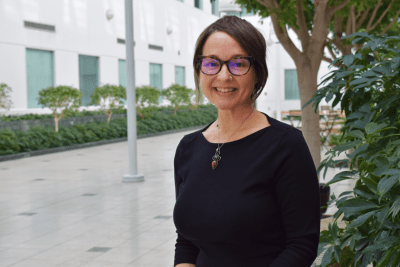Main Discipline(s):
Main Professional Societies:
Affiliation(s):
- Sociology
- American Sociological Association
- Society for the Study of Social Problems
- Sociologists for Women in Society
- North Central Sociological Association
- Wayne State University, Department of Sociology
My research focuses on racial/ethnic relations and Indigenous peoples and Native nations. I use qualitative methods to reveal the impacts of settler colonialism and white supremacy on people’s everyday lives and overall well-being. My new book – available for purchase in January 2023 – explores experiences of urban Native identity in two pan-Indian communities in NE Ohio. Whereas the relocator community serves people who relocated from Indian nations to Northeast Ohio, the reclaimer community predominantly serves people who are reclaiming Indian identities. Drawing on ethnographic research conducted over 2 ½ years, this work reveals that relocators and reclaimers not only apply different meanings to indigeneity, but they also develop different strategies for asserting and maintaining Native identities in an urban space inundated with false memories and fake icons of “Indian-ness.” Despite this cultural clutter, which replaces past, present, and future realities of Indigenous peoples with one-dimensional caricatures of Indian-ness, relocator community members are able to sustain Indigenous identities and perspectives by embracing urban pan-Indian practices and maintaining (sometimes distant) relations with tribal nations. In contrast, reclaimers’ (fictive or factual) dislocations from tribal nations produce identity strategies that reinforce stereotypes of Indian-ness and contribute to settler colonial processes of Indigenous erasure. Taken together, the interconnected stories of relocators and reclaimers expose the struggles of Indigenous and Indigenous-identified participants in urban pan-Indian communities. Their collective memories not only elucidate the persistence of Indigenous people in “unexpected places,” but also reveal problematic Indian identities created by racializing forces in US settler colonial society.
After earning my BA, I became an AmeriCorps *VISTA (Volunteer in Service to America) on the Navajo Nation. From that point forward, I was committed to working for justice for US Indigenous peoples.
I am passionate about criminal justice reform and want to conduct research that helps to elucidate the need for drastic changes in how we think about “justice” and how we treat citizens who committed crimes (during and after their incarceration).
Rosa Parks. She was a freedom fighter long before she became the face of the Civil Rights Movement and continued to fight for the rights of people of color long afterward, too. It is tragic that more people don’t know her full story. (If you only know her as the person who refused to move from her seat on the bus, I encourage you to learn more about her life and activism.)



